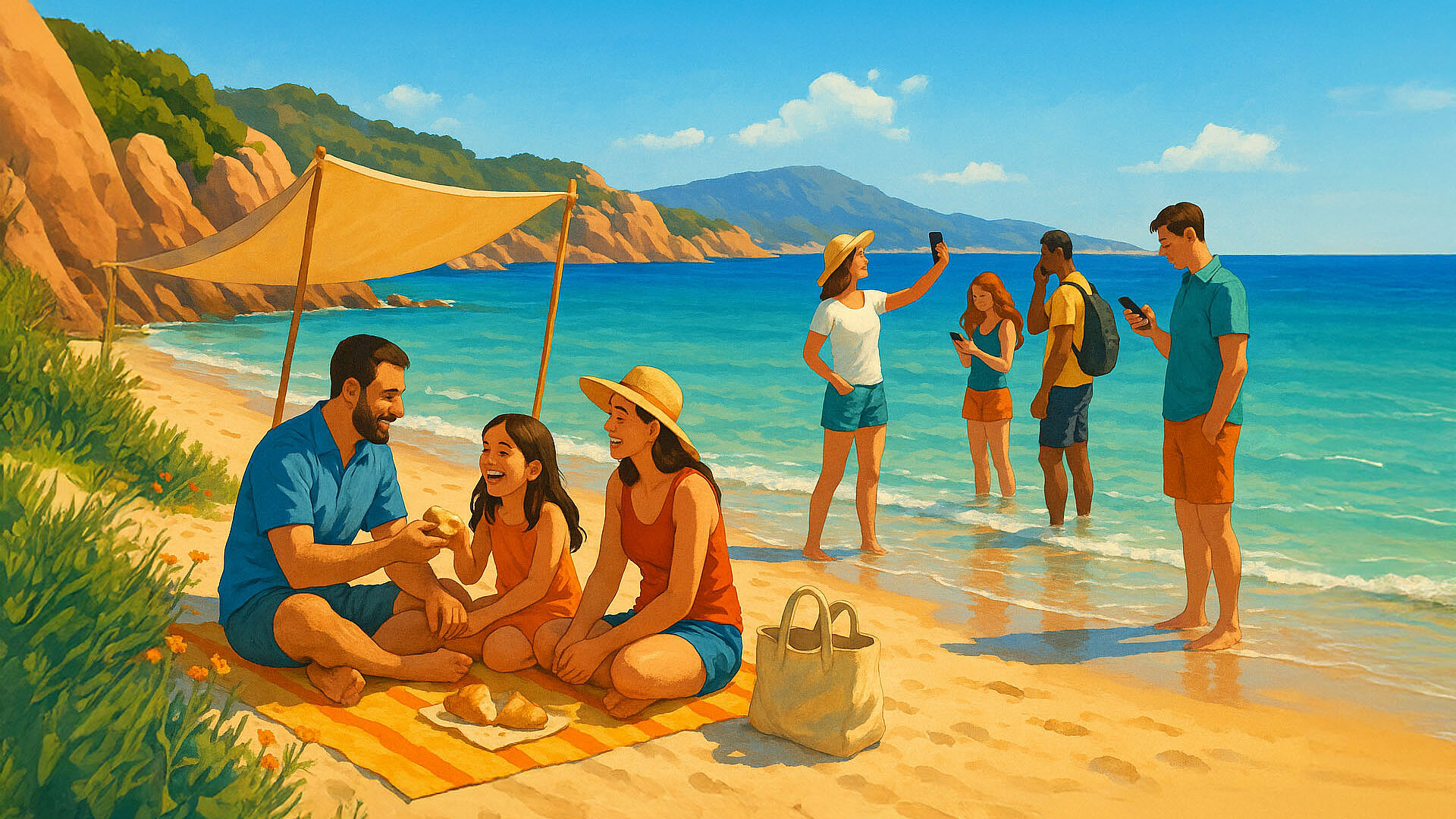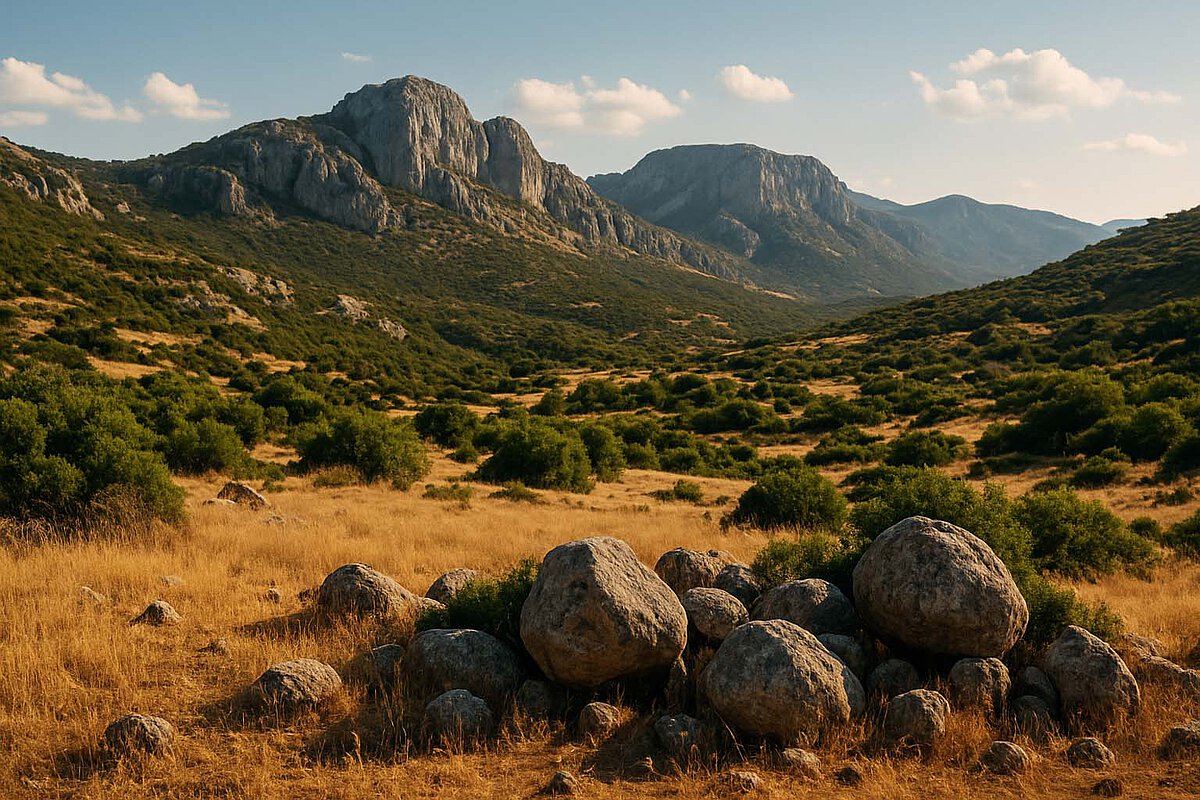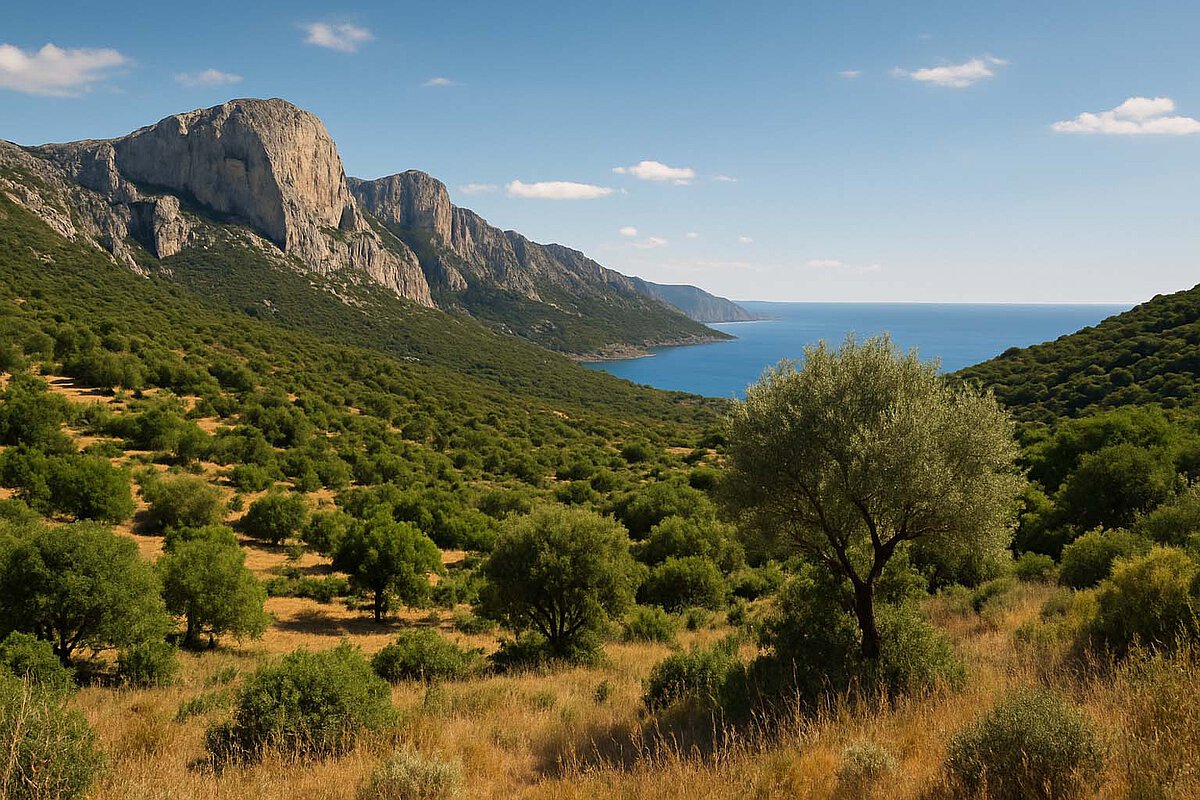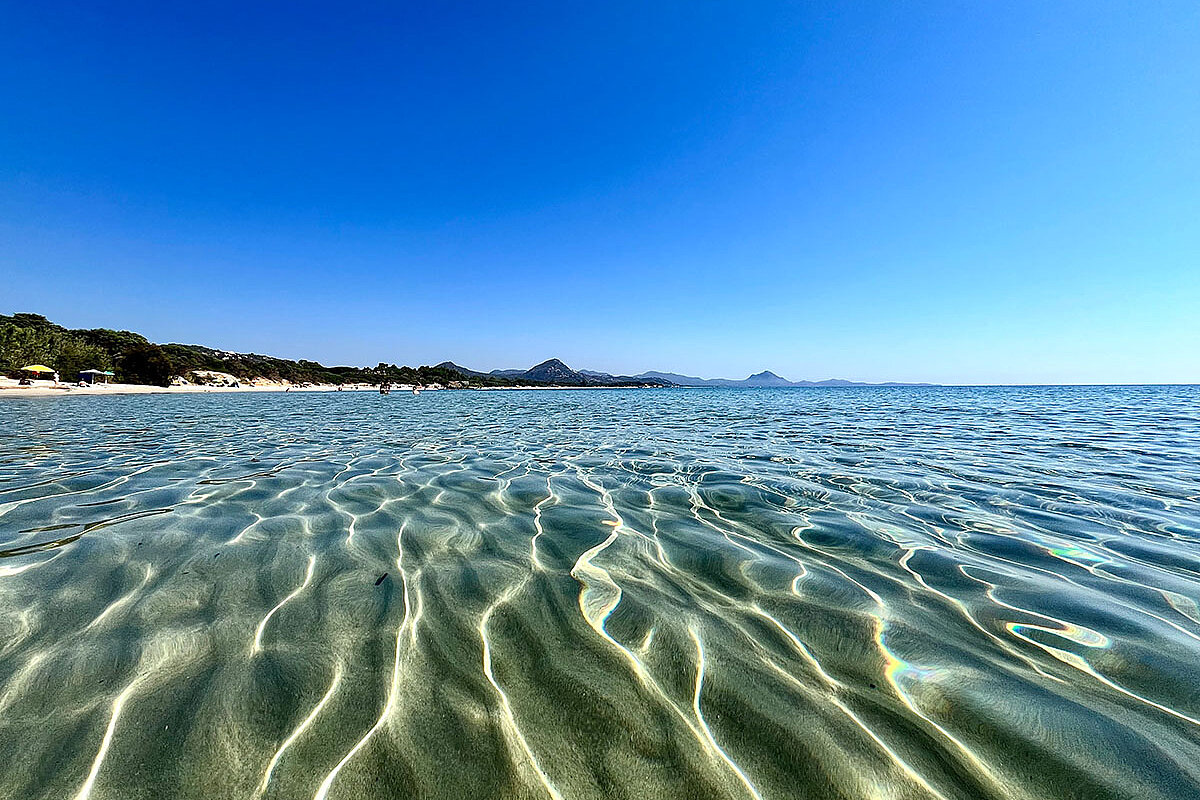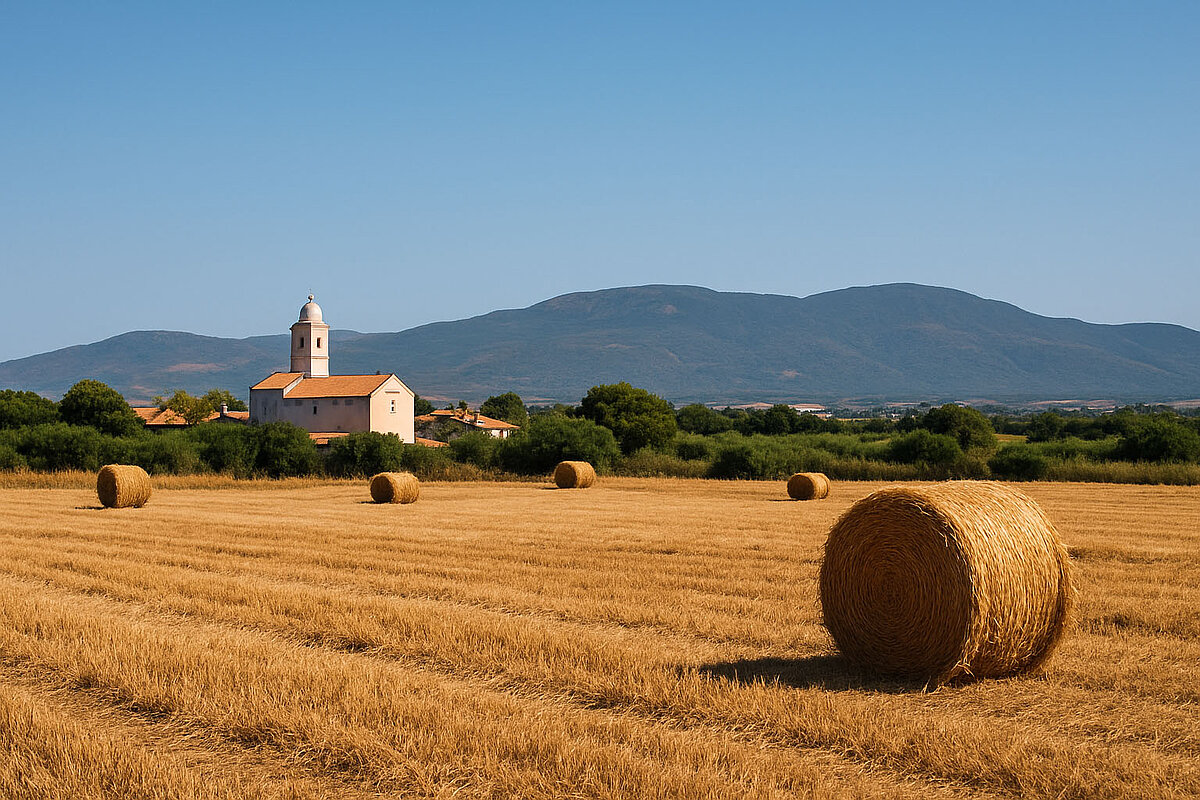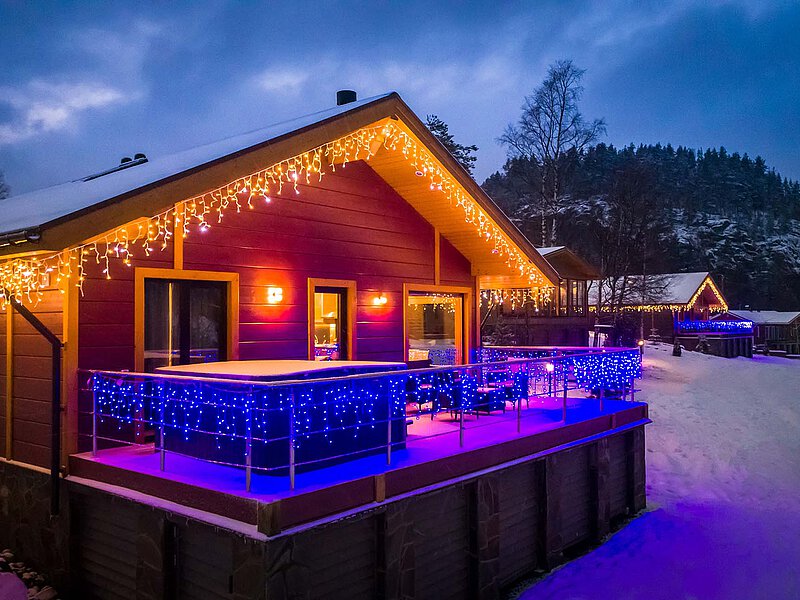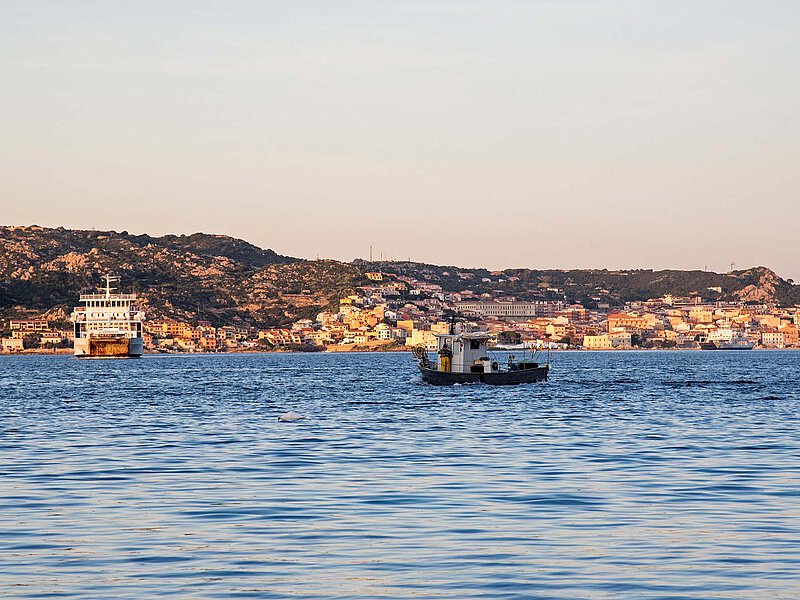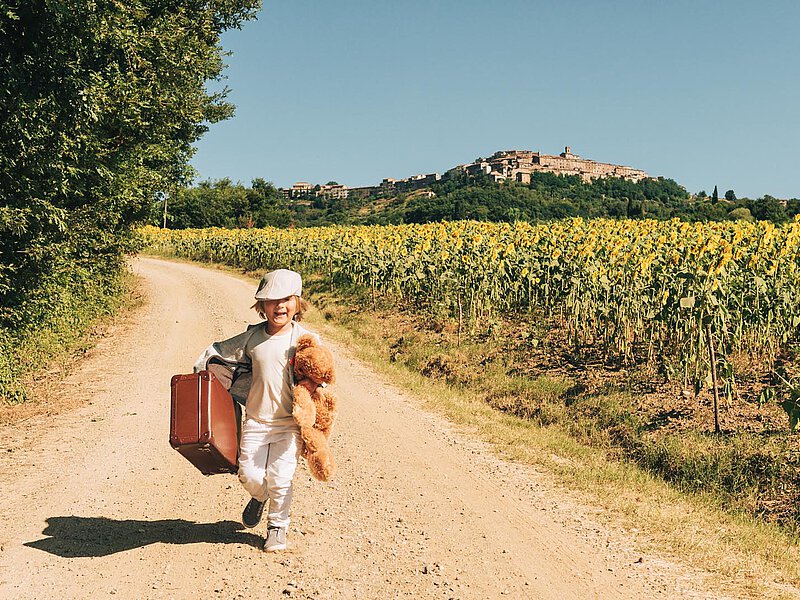Sardinia’s lesson: Living the moment or missing it on screen
In brief
For anyone who wonders what’s left when we put the phone down. This is about presence, not nostalgia. Sardinia… but really, everywhere. Why read? Because you might recognize yourself, or someone you love.
A beach full of screens: notes from a slow observer
There’s a story we were told, nothing dramatic, just true. Sardinia, early summer. Families, friends, couples, all with a phone in hand. The surprise? Phones follow everywhere, even into the sea. You see people standing in the water, heads bent, talking to their screens, risking the moment for a selfie that vanishes by evening.
We’re not here to judge. But the scene sticks with you, makes you think: When did the holiday become a broadcast? When did living get swapped for documenting?
When memory is outsourced to the cloud
What you notice isn’t just the phones. It’s how quickly the moments disappear. A child laughs, a parent grabs the phone, records, and the laughter changes. For a second, the family is together, then split: one side of the lens performing, the other recording. The day becomes a scroll of stories, a file of images nobody will ever really look at again.
Something gets lost
Is it just time? No. It’s presence. It’s the simple, awkward silence before someone says the right thing. It’s the way your hands smell after touching real bread. It’s noticing the way the wind sounds different near the old pines.
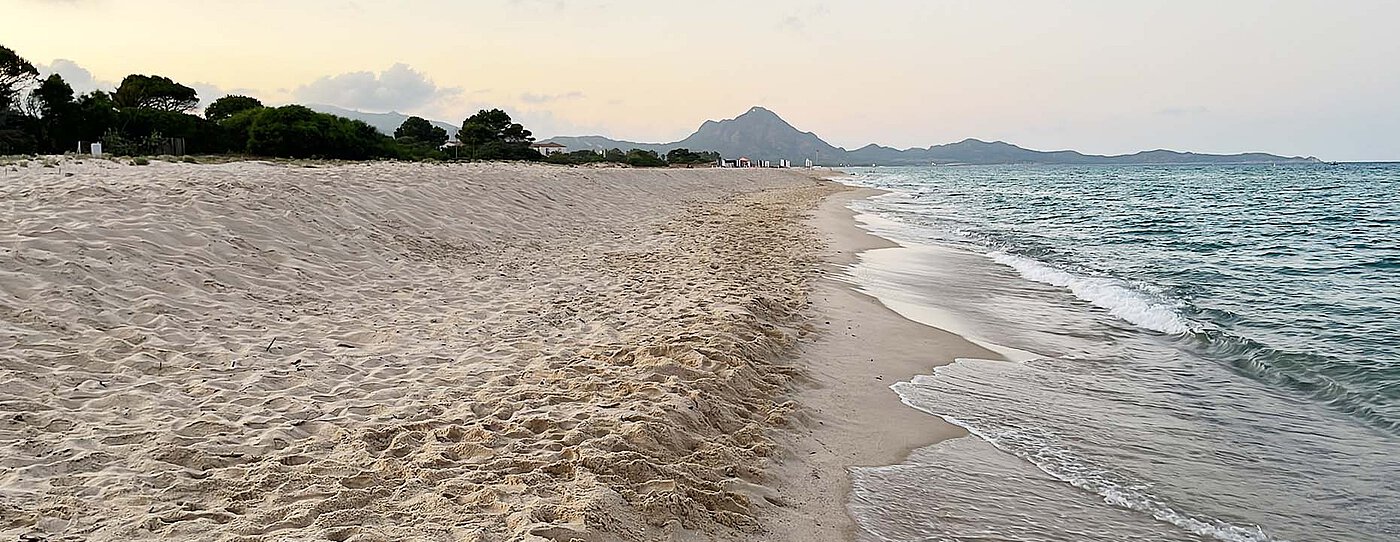
A beach full of screens
Phones follow everywhere, even into the sea. You see people standing in the water, heads bent, talking to their screens, risking the moment for a selfie that vanishes by evening.
What’s real, what’s borrowed: the price of distraction
Of course, this isn’t just a “digital problem”. It’s a lifestyle, a reflex. But here’s the thing—when every memory is filtered, curated, cropped to fit a story, we lose more than attention. We lose the link between ourselves and the land.
And the environment feels it too. Plastic phone cases, headphones, disposable batteries, left behind like shells in the sand. Microplastics blending with grains of salt. A landscape changed by our need for constant connection.
You can’t photograph a scent, or a moment of shame, or the slow way dusk falls over a field. You can’t post the feeling of being really, awkwardly alone with someone you love. No distractions, just the sound of your own breathing, the crackle of grass underfoot.
Slow living isn’t an escape, it's a way back
It’s easy to think “digital detox” is just another trend. But what if slow travel, countryside holidays, are really about… remembering? Remembering what food tastes like when you’re hungry, not distracted. Remembering how stories sound around a real table, with no photos needed.
These places, the real countryside, the farms with broken fences and homegrown tomatoes don’t offer escape from the world. They offer a return: To being bored. To being present. To noticing the way your thoughts change without a stream of notifications.
Maybe, just maybe, that’s why places like this matter. Because you can leave your phone behind and discover the world is still here: messy, imperfect, waiting for you.
Environment, care, and the ripple effect
Every action has a cost.
If you’ve ever found an old charger washed up on the beach, you know. Sustainable travel isn’t just about “less plastic” or “eco-friendly choices.” It’s about living differently: valuing what’s here, now, with the people you’re with. It’s sharing a meal you’ll forget to photograph, planting something for someone you’ll never meet.
A countryside holiday is a small act of resistance—a vote for slowness, for roots, for community. No app can replace that. No story will last longer than the memory of a child chasing fireflies through a field, no camera in sight.
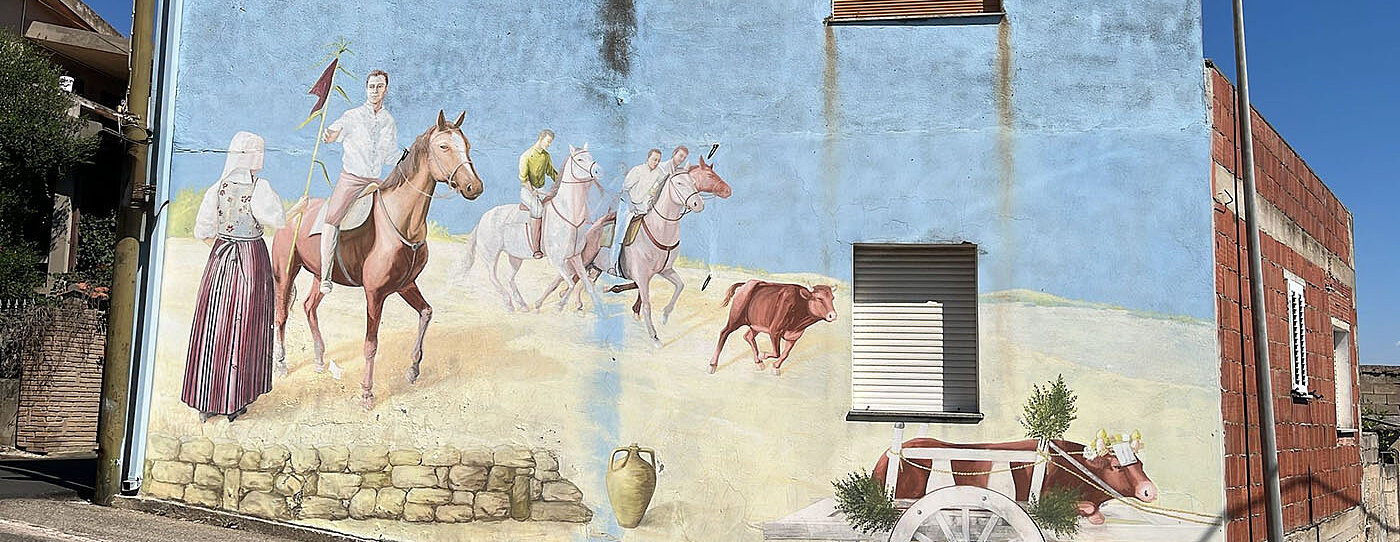
What Sardinian locals know, and what tourists forget
On one side, you see tourists rushing to document every moment, phones in hand, even in the sea. On the other, locals living unhurried, anchored in the present, almost as if they’re guarding a secret we forgot.
What Sardinian locals know, and what tourists forget
But there’s something else that stays with you. Something almost shocking, in a quiet way.
The people of Sardinia, the ones who call this place home, they move at a different speed. Life, here, is slower. They take their time: eating, talking, shopping for food at the market, even just walking through the village. It’s not just a stereotype; it’s something you feel in the air. A calm.
And suddenly, the contrast is impossible to ignore. On one side, you see tourists rushing to document every moment, phones in hand, even in the sea. On the other, locals living unhurried, anchored in the present, almost as if they’re guarding a secret we forgot.
Maybe it’s the desire to hold onto traditions. Maybe it’s the magic of an island where time seems to bend. Whatever it is, it makes you wonder if we shouldn’t try to learn from them—even if just for a week, even if just in summer. Just slow down. Try to live like them… if only for a little while.
Frequently asked questions
A slow holiday gives you space to reconnect with yourself, others, and the rhythms of nature. It’s not just a break, but a chance to notice the details you miss when rushing or always using your phone.
Country life means less waste, fewer crowds, and more respect for land and local traditions. Many hosts use local food, avoid plastic, and care for their surroundings in small, everyday ways.
No. Most guests find they gain much more: deeper rest, real conversations, and memories that last longer than any photo.
Islanders value time. Meals aren’t rushed, shopping is an event, and even errands have their own slow rhythm. This pace helps you slow down too.
Yes. Children and adults rediscover simple joys: walking, tasting fresh bread, listening to stories, exploring without screens. It’s a holiday that stays with you.
More inspirations
In Which European Country Is New Year’s Eve the Most Beautiful?
Italy, Austria and Denmark offer the most beautiful rural New Year celebrations in Europe. Italy brings warm food traditions, Austria blends snow and…
Islands and the mainland: Where Distance Becomes Meaning
Islands live between connection and solitude. They belong to the continent yet feel apart from it — separated not only by water, but by rhythm, light,…
Short Breaks, Big Impact: Why Small Escapes Matter
Not every holiday needs to stretch over a week. Two or three days away can be enough to reset, reduce stress, and notice what daily life often hides.…

